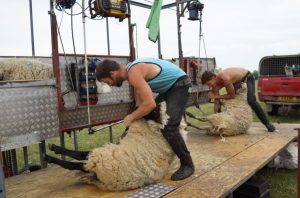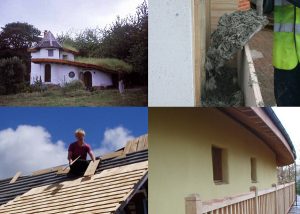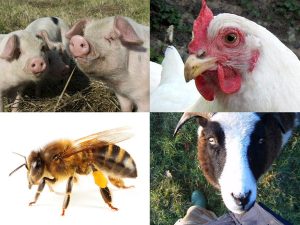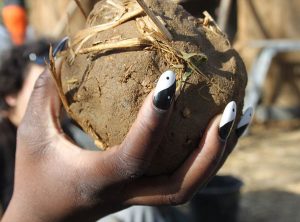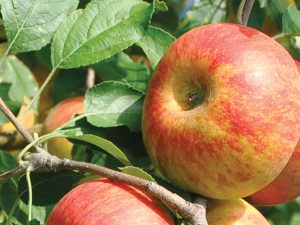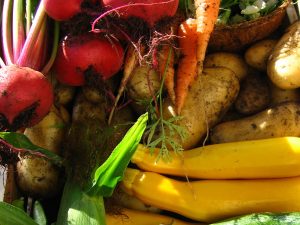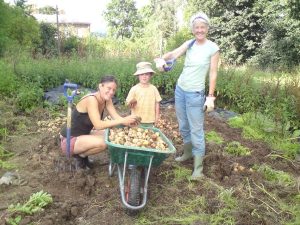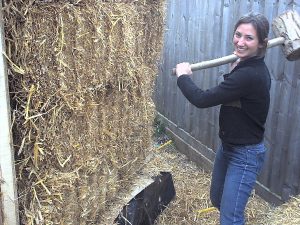Embarking on a new life in the countryside, away from the trappings of urban existence, is a dream increasingly common to many. This week we interviewed Janet Jenkins about her and her family’s smallholding journey, putting the heart back into the land at Cuckoo Farm. A 45 acre smallholding in South Devon, it’s been their home since 2014, together with two dogs, four pigs, six chickens, six horses and a small flock of Jacob sheep. It is a multi-stranded, many-hatted existence for the family, which includes an egg enterprise and seasonal glamping trade, alongside the demands of everyday farming life.
Lowimpact.org: Was a rural existence part of your upbringing, Janet?
I was born on the outskirts of London, which in the 1960s was still very rural. My grandad in particular was very interested in horses and country life in general. We used to go fishing together, giving me time to just sit in nature, which I loved. As I grew up, I was able to maintain my interest in nature through bird-watching but was increasingly aware that something in society was beginning to be lost. London was creeping ever closer and everything was becoming mechanised.
And did London eventually reach you?
By the 1970s, with the era of punk rebellion in full swing, I was working in London, battling the Tube every day and becoming quite stressed by it all. I ultimately become very unhappy and depressed, turning to alcohol and recreational drugs as an escape. A turning point came, however, when I decided to take a trekking holiday in Wales with friends.
What happened next?
Three pivotal things: riding a horse for the first time since the age of five; reading John Seymour’s seminal book Self-Sufficiency; and experiencing the wild landscapes and hill farms of the Black Mountains, which I found to be very healing. This led me to realise that all I wanted to do was to live as close to the land as possible and to be as resourceful as I possibly could. I embarked upon a journey of self-discovery, undertaking training in teaching and counselling and then eco and equine therapies.
At the same time, I also met my husband, Simon, who was at the time working in underwater exploration in the oil industry. With his hero being Jacques Cousteau, this was not a natural fit for him and he became increasingly dissatisfied.Things came to a head when he was held hostage in Nigeria as a result of tensions between the oil companies and local fishing communities. Sadly, the experience triggered a deteriorating eye condition, all of which combined caused him to leave the industry.

And so started a new chapter?
Yes. In a first step to promoting sustainability and our wider values, we opened a shop called Harvest Moon in Hitchin, selling fair trade gifts, jewellery, furnishings, clothes and natural health products. Whilst it was lovely in many ways, being indoors so much started to drive me a little mad. I began to take on additional work leading retreats and workshops, helping people to engage with nature and sacred landscapes from Dartmoor to the Arctic. My daughter Rosie’s interest in horses gave me a renewed focus in this area too, with an emphasis on natural horsemanship and the power of the herd.
Throughout this time we were renting small pieces of land, for the horses and for growing, but were always frustrated by restrictions and conditions as to how we could manage the land e.g. avoiding the use of nitrates, which would make our horses sick. We dreamt of owning our own smallholding but having children at various stages of schooling meant it was only in 2013 that we began to make plans.
What were your criteria when searching for a suitable location for a smallholding?
We knew we wanted to relocate to South Devon, having holidayed around the Kingsbridge estuary since 1981. Our main criteria were that the land: be able to support as much biodiversity as possible; ideally have a house in the middle of it, drawing on permaculture principles; and be sufficient to support our horses who would be living out all year round.

And did you find a perfect match?
No one place fitted the criteria exactly but Cuckoo Farm was particularly interesting to us: 45 acres adjoining a nature reserve, with a newly built timber-framed thatched-roofed straw bale and cob house, woodlands and an orchard. Solar panels and a wood burning range would heat the water supplied by its very own borehole. There was an existing free range egg business ready to take on, with chickens formerly housed on the land (although they have since been relocated to enable it to heal).
We had always wanted to build our own home and, as it was no longer feasible, this seemed the next best option. We made the move in the summer of 2014, knowing the land needed serious restoration due to the former semi-intensive poultry keeping. It felt almost as if we were pioneers or settlers, in a way that taking on an already well-established smallholding might not have done.
How did things progress from there?
Well, whilst we knew we were taking on a lot putting the heart back into the land, what we didn’t expect were problems with the house, too, which sadly started to become apparent soon after moving in. Thankfully, we were able to recruit the help of Barbara Jones and the team at Straw Works, whose book we had been selling for years back at our shop in Hitchin. With their keen eye for design and details, we were able to undertake the necessary repairs last year. It’s fair to say we’ve learnt the truth of the saying ‘low impact, high maintenance’.
With the land itself, it took us two and half years before we began to feel the tide turning in terms of restoration. There’s been a great deal of putting right before being able to move forward. Lots of people thought we were mad for undertaking such a huge project but we like to think it’s the rest who are mad to carry on with their lives in such unsustainable ways.

Do you have any advice to offer to those considering taking on their very own smallholding?
- If you’re not prepared for a huge amount of work, be very careful what you take on
- Make sure you ask neighbours about any land you’re hoping to take on – ours knew about the blocked Victorian land drains and electrical cables lurking buried in fields, for example!
- Don’t underestimate the amount of time and money required to build infrastructure
- Try to avoid becoming isolated – the egg business helped us integrate into the local community and meant I had to leave the farm at times, despite the huge amount to do
- Make friends with your neighbours – even if you’re farming in different ways, mutual respect and a willingness to help one another go a long way
- Be willing to accept help – be it friends, family, WWOOFers or volunteers, even something as small as making a cup of tea!
- Be accepting of the unexpected

Alongside all of the challenges you’ve had to face, what are the positives of smallholding for you? What keeps you going?
It’s true that we’ve had to put a lot of on the back burner in terms of our original hopes and ideas. In my ideal world we’d be running a smallholding without machinery, using very traditional methods of animal husbandry and food production. That not being feasible quite yet, we’re learning to work with what we actually have, rather than what we wish we had.
We’re moving towards being organic and hope to provide as much natural habitat as possible. As the land has not been intensively farmed for some years now, there is a real abundance of wildlife. Right now, the tree planting schemes and woodland grants are helping us improve the land drainage issues; we have an established polytunnel and veg garden supplying us with seasonal food; and a project is underway to re-generate the orchard. Our flock of Jacobs is set to grow soon, too, with lambing very nearly upon us. The pigs, meanwhile, are enjoying turning up the ground where needed, helping us in managing the land.
Ultimately, it’s amazing to be able to offer opportunities to others to come and share in the land. We know that it’s a real privilege to be here doing what we are and that we therefore have a responsibility to include others in this as far as we possibly can.
Thank you, Janet, for sharing your smallholding journey with us. We wish you every success at Cuckoo Farm over the coming months and years!
You can find out more about Cuckoo Farm via their website and and see a snippet of farm life here.





